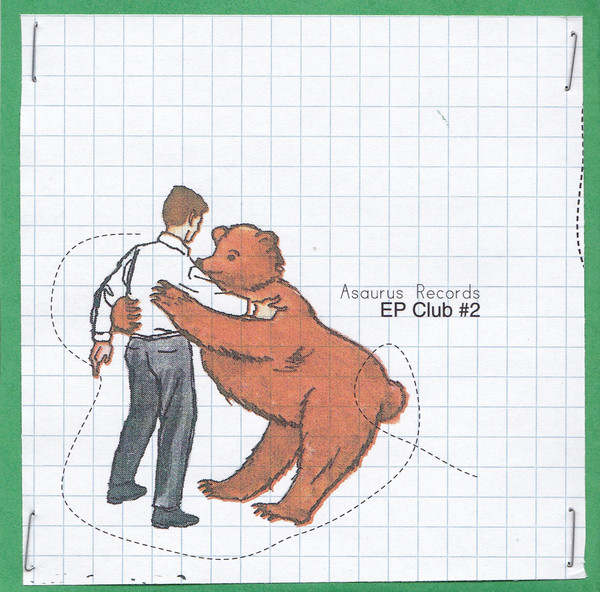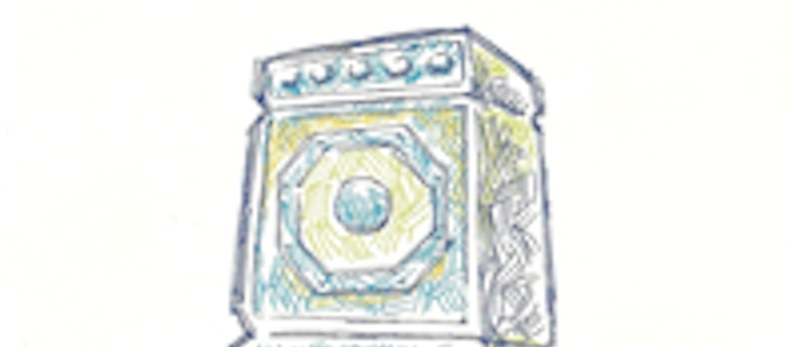While the roots surely run deeper, the indie compilation craze reached its peak, in my mind, with a flood of releases by predominantly Pacific Northwestern labels in the early- to mid-1990s.
There are the K collections, which encouraged many micro-indies to jumpstart labels with decidedly lo-fi (and occasionally cassette-only) affairs.
There are the strings of Kill Rock Stars comps, many of them bearing the names (and musical asides) of indie heavyweights like Beat Happening, noisemakers and punks of the Melvins variety, acts like Nation of Ulysses and Bratmobile and even, yes, Nirvana.
And there are, of course, the “collectible! collectible! collectible!” installments in Sub Pop’s much-lauded and much-imitated 7-inch singles club (Again, yes, Nirvana.)
A few years removed from this glut of regional collections, an indie from Allen Park, Mich. has decided to re-imagine the limited-run compilation in the day of the MP3 and the CD-R and, surprisingly, the results are pretty admirable.
It would be an overstatement to call the second round in Asaurus Record’s EP Club a great record in and of itself, but it most definitely has some great moments. Many of these come from singer-songwriter Mike Downey, who (as The National Splits) opens the 16-track “EP” with a quartet of alarmingly effective acoustic guitar songs.
A balladeer who pairs understated refrains with a knack for pop structures, Downey has a clear sense of how to craft a complete song using just the basic building blocks [Look to the subtle backing harmonies, occasionally keyboards and spare found percussion of the album-opening “Pentwater” or the careful multi-tracking of “Heart Red Phone (Acoustic)”]
There are bands and musicians who would minimize or massacre Downey’s songwriting abilities with saccharine studio production but he does quite well with his limited resources (Four-track or eight-track? You be the judge.)
When he tries to up the odds a bit, the listener’s treated to a bit of a surprise, the addictively lilting pop and electric guitar bounce of “The Revival of an Evening,” where Downey shows some clear debts to his 1980s forebears.
(As a humorous aside, Downey offers the following explanation for the more-produced track, which features multiple guitars, keyboards and even handclaps: “I make this little sound when I’m happy. Sometimes I force myself to make that sound.”)
Downey’s National Splits are followed by the buzzy pop/pop-punk of New Grenada, whose grungy but playful choruses and loud-in-the-mix vocals place them somewhere near Bratmobile or a TeenBeat collection.
The skittering “Lazer Blast,” with its video game guitar lines and keyboard interludes, is a standout among the group’s four songs. With vocalists John Nelson and Nicole Allie began singing dueling-banjos style, the band even hints at the boy/girl give-and-take of Servotron, though minus the robotic stoicism and all that thematic cover art. “Li’l Kate” is another charming example of the quartet’s shimmering pop sound.
The Pizazz and Me Low close out Asaurus’ latest EP/comp with songs that are interesting but ultimately shaky and inconsistent. Some of The Pizazz’s songs have catchy moments (the instrumental romp at the end of “Thanks, Knife,” the crashing introduction and overt playfulness/silliness of “Legomania,” the King Kong 1-2-3-4/1-2-3-4 of “Poor Monkey”) but the production can be more detrimental than anything else.
How can a listener be engaged with a genuinely engaging keyboard-driven refrain or with a well-shouted lyric when it mumbles from behind a wall of static or underneath poorly recorded drum cymbals? There is something lo-fi and interesting about The Pizazz but that something needs room to be developed over more than just a few tracks.
Much the same could be said of Me Low, whose clunky acoustic guitar asides bare the marks of the still-developing songwriter (the occasional tempo shifts, the interesting or innovative moments surrounded by the more predictable, the non-existent dénouements). The best offerings from the band are “Sunlight Girl” and “Train Tracks,” where the washboard shuffling of an acoustic guitar acts as a foundation for lyrics about wandering and finding home, most of them near the repeating refrains of the blues.
Moving further into the extra-musical department, though, Asaurus Records (as well as artist “and such” Matthew Baringer) deserve some applause for their innovative packaging of the EP series, which combines a playful childhood aesthetic (plain, colored construction paper stapled to simple, hand-cut drawings of birds and people fishing, et cetera) with some of the trappings of indiedom (obscure band bios and liner notes, odd juxtapositions of familiar images).
The art and delivery are an effective vehicle for the songs contained therein, something that — along with some planning about future appearances/recordings —could make the series worth noting as a successor to a long line of Northwestern and other regional indie collections. – Delusions of Adequacy, June 14, 2004




